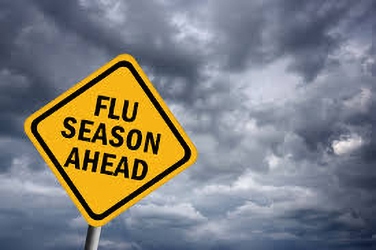No one will argue with you if you say this has been quite a year. And it’s very likely that we will all breathe a huge collective sigh of relief when 2020 comes to an end. But, before it gets too late this fall, it’s time to think about getting your flu shot.
And this year, it is even more important than ever as we are still in the midst of the COVID19 pandemic.
Data lags a bit from the CDC, but for the 2018-2019 flu season, the CDC reported that approximately 55% of Americans did NOT get the flu vaccine.
In that same period, the CDC estimated that the flu was associated with more than 35.5 million illnesses, more than 16.5 million medical visits, 490,600 hospitalizations, and sadly, 34,200 deaths.*
For those folks who think they get the flu when they get the vaccine, or think they’re going to be OK if they do get the flu, this is NOT the year to take a chance.
As my mother used to tell me, “You can look it up” or…you can read this month’s issue of The Flame.
Please stay safe.
—Betty
*data from the CDC
When’s the best time to get a flu shot during the COVID-19 pandemic?
Summer’s almost officially over, and unfortunately, we are still very much in the throes of a pandemic. As fall approaches, there’s another community health concern to contend with: flu season.
The dual threat of influenza and COVID-19 has public health experts warning of a “twindemic” effect that could sicken the population and overwhelm hospitals.
According to the CDC, your best, healthiest option is to schedule your flu shot for late September or early October (definitely before Halloween), for the flu season that peaks between December and February. While flu season can last well into late spring, it typically ramps up in the fall and peaks between December and February.
How long does it take before the flu shot works or starts to protect me?
After getting the flu shot, antibodies begin building right away, it takes about 2 weeks to build up antibodies to reach the full level of protection.
Getting vaccinated at the beginning of fall allows ample time to build up immunity that will last through the worst months of flu season.
How long will the flu shot actually protect me?
Infectious disease doctors and epidemiologists (aka “disease detectives”) say that you probably get about six months of coverage.
Why is it so important to get the flu shot this year? Will it protect me from COVID-19 too?
No, the flu shot will not protect you from COVID-19. But it’s important to protect yourself from the flu for several reasons.
The flu often takes an enormous toll on our healthcare system, so it’s critically important that people do what they can to reduce their chances of getting it. Otherwise, hospitals and healthcare facilities could become overwhelmed if they need to treat both flu and COVID-19 patients.
It is particularly important this year that those with high-risk conditions receive the flu vaccine so that we are not utilizing critical hospital beds for flu that may be used for those with COVID.
In addition, it’s not yet known whether people will become co-infected with both flu and COVID-19 at the same time — and what the consequences of that combination could be.
Will the COVID-19 pandemic change how I get the flu shot this year?
Yes. In previous years, you may have gone to a crowded doctor’s office or walked into your local pharmacy to get a flu shot on the spot. This year, healthcare personnel will be wearing PPE, spacing out when patients arrive to ensure physical distancing, and requiring them to wear a mask while they get their flu shot. Patients will also be screened for COVID-19 symptoms or exposure and should stay home and reschedule their appointment if they don’t feel well. Be safe and call ahead–you may be required to make an appointment instead of just walking in.
Is there anything that my over-65 years old parents should know that is different for their age group when worrying about the flu?
Timing is especially important for people 65 years old and greater who don’t build up the same level of immunity or antibodies and who might not have immunity for as many months. Seniors also require a high-dose vaccine, which is available wherever you get your standard flu shot.
Where can I get a flu shot?
The flu shot is widely available — at your doctor’s office, local pharmacy, community health center, pop-up sites — and is either free or covered by insurance. Check with your local health department for nearby locations. The CDC also has a vaccine finder site you can use to look up a site near you.
Will the flu shot put me at greater risk of getting COVID-19?
No. That is misinformation that has been refuted multiple times by infectious disease experts. Getting the flu vaccine will neither protect you from COVID-19 nor will it increase your risk of COVID-19 infection.
Would the flu shot have an impact of the effectiveness of a COVID-19 vaccine, should one be developed and available soon?
No. Vaccines are specific in their effects. If that were not the case, we would have a universal vaccine against all respiratory infections, and we don’t.
Do your research on where you can get your flu shot this season! Don’t delay!

